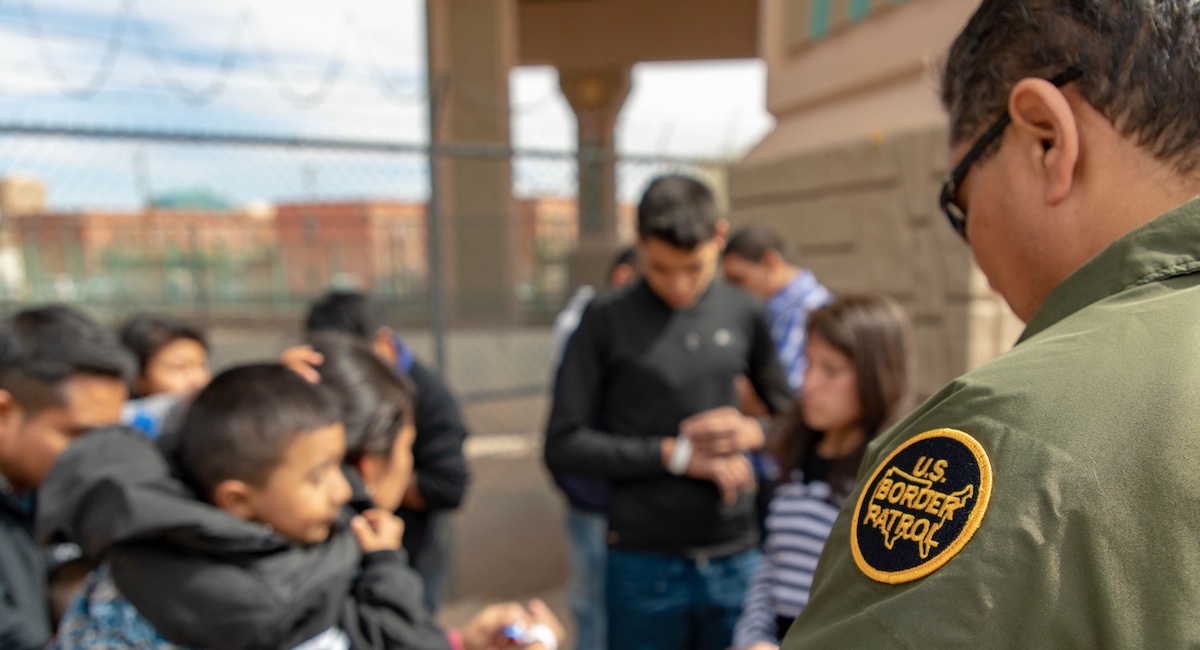HOUSTON, Texas – Texas is currently at the center of a heated debate with the introduction of Senate Bill 4 (SB4), a piece of legislation spearheaded by Governor Greg Abbott that has sparked vigorous discussions across the state and beyond as it gears up to take effect on March 5.
Recent years have seen an overwhelming number of movements at the U.S.-Mexico border. According to the Texas Tribune, federal fiscal year 2023 witnessed 2 million encounters, a slight decrease from the previous year’s record-breaking 2.2 million. Thousands reportedly continue to cross the border daily. This influx has left smaller cities around the border struggling to cope, with local resources stretched thin and communities feeling the burden.
Governor Abbott has been unapologetic regarding measures for what he calls protecting the Texas border. His tough stance on immigration, including deploying troopers and National Guard members to arrest migrants on trespassing charges and busing migrants to different cities, has garnered significant support from members in the Republican party who express frustration with the federal government’s handling of border control. Supporters view Abbott’s measures as necessary to alleviate the pressures on their communities. Many people of color, however, feel this is yet another blow to already disadvantaged communities.
SB4 criminalizes the act of crossing the Texas-Mexico border illegally between ports of entry. The bill has been met with stiff opposition for its potential to infringe on civil rights and for blurring the lines between state and federal jurisdiction over immigration. Critics, including legal experts and community leaders, argue that SB4 could lead to racial profiling and unjust targeting of immigrants.
Those charged with a Class B misdemeanor face possible punishment of up to six months in jail and repeat offenders could face a second-degree felony with a punishment of two to 20 years in prison. The law allows a judge to drop the charges if a migrant agrees to return to Mexico.
Civil rights concerns
What has the streets of Houston buzzing is the notion of a police officer demanding to know the immigration status of a person they suspect are undocumented. Critics of SB4 raise concerns about the potential violations of civil rights.
“It’s not a very well thought out piece of legislation,” said Vickie Gambia, Legal and Advocacy Director at Houston Immigration Legal Services Collaborative. “It’s an unenforceable law and is going to create a lot of fear and worry.”
Gambia highlights the bill’s potential for racial profiling and expresses concern about its enforcement, especially in a city as diverse as Houston.
“I think people need to know a few things. First, if you were to be picked up because somebody suspected you crossed unlawfully – unless you are standing in front of a federal immigration official – you do not have to tell any of these people what your immigration status is,” she explains.
Gambia wants people to know, even though the situation may be scary, the law is on their side.
“You can ask the question of ‘Am I under arrest?’ And if the police officer says you are not, then you can say, ‘I decline to answer your question,'” she adds.
Fears of racial profiling
Jonathan Guevara and Bryan Zelaya, fellow rappers and record label owners, use their influence to advocate for the Latino community. At their “Breaking Bread Saturdays” events in southwest Houston’s Alief neighborhood, which is predominantly Hispanic, they see a lot of the fear among people.
When asked if he had ever experienced racial profiling, 37-year-old Guevara provided a one-word answer: “always.”
“We thought there was no way this could happen in 2023. Now that they actually wrote it in, the fear is that they are going to have the power to just randomly say to us ‘Papers! Let me see your papers!’ This is just a sad situation,” Guevara said.
He added, “People are pissed and are not going to take this lying down. They are ready to stand for their rights and support each other while calling out any police or members of the law who think they can further bully already oppressed people.”
Zelaya, known on stage as “Perro-B,” adds, “On social media, there’s a lot of anger. People are sharing stories of encounters and discussing how to protect themselves. There’s talk of organizing protests, of standing up against what many see as an unjust law.”
Zelaya says they hear from people every day who are afraid to step out of their homes.
“The invasion of the privacy of a person, regardless of their gender, age, or color, is outright racist,” he said. “I find it ironic how people who took over a land that wasn’t theirs are now asking for the identification of other people.
Mounting legal opposition
The legal opposition to SB4, led by organizations like the ACLU and Texas Civil Rights Project, centers on its potential overreach into federal immigration enforcement jurisdiction, a domain constitutionally reserved for the federal government.
“SB4 is cruel and dangerous legislation that opens the door for racial profiling and doesn’t make us any safer,” Harris County Commissioner Rodney Ellis announced on X, formerly known as Twitter.
County Judge Lina Hidalgo also voiced her opinions on social media, posting, “Texas’ SB4 bill turns police into ICE agents, maligns immigrants, threatens public safety, & could further overwhelm our jails. ~500k immigrants keep our community thriving despite not having papers. The solution is collaboration w/local & fed. partners, not misguided legislation.”
As SB4 prepares to take effect, legal, social, and humanitarian concerns continue to dominate conversations. Community leaders and activists in Houston remain steadfast, vowing to keep their voices at the forefront in challenging and shaping Texas’ approach to immigration and border control.




